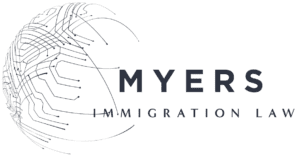In today’s global economy, access to international talent and cross-border expansion are key drivers of business growth. For U.S. business owners and entrepreneurs, understanding the immigration system is essential to hiring skilled professionals, launching new ventures, or transferring key personnel from abroad. This guide breaks down the most relevant temporary and permanent visa options—helping you navigate the U.S. immigration landscape with clarity and confidence.
Significantly relied upon by the biomedical industry, the U.S. immigration system is divided into temporary “nonimmigrant” visa categories and permanent “immigrant” visa (i.e. green card) categories. Below is a discussion of the different categories with hyperlinks to articles on the Myers Immigration Law website for more information. The “Insights” tab of the website contains articles covering a broader range of topics as well.
Temporary Nonimmigrant Visas
Common professional worker visas include:
- Trade NAFTA (TN) visas for Canadian and Mexican professionals whose occupation is listed in the USMCA (formerly known as NAFTA).
- H-1B1 Specialty Occupation visas for Singaporean and Chilean
- E-3 Specialty Occupation visas for Australian
- H-1B Specialty Occupation visas for professionals from any country. However, this visa category generally requires an annual lottery as a prerequisite, except for employers which are Universities, nonprofit University affiliates, and certain research institutions.
For individuals who can demonstrate extraordinary ability or achievement, including through peer-reviewed research and publications, the O-1 visa may also be a good fit. Certain professionals may also be sponsored under J-1 Cultural Exchange visas for specific programs.
Common visas used by international entrepreneurs are E-1 Treaty Trader visas for companies with substantial trade and E-2 Treaty Investor visas for startup businesses which constitute a substantial investment in the United States. A benefit for companies which qualify for E-1 and E-2 visas is that managers and essential-skills professional workers are eligible to apply. For citizens who are not from countries with an E-1 or E-2 treaty, expanding an existing business from outside of the United States may be possible under the L-1 Intracompany Transferee visa to establish a new office with managers and specialized (company) knowledge employees. For companies with multiple owners or for minority owners, professional worker visas may be the most viable pathway forward, even for entrepreneurs.
Permanent Immigrant Visa (Green Card) Categories
The green card categories are divided into five employment-based (EB) preference categories, with subcategories in relevant part below:
- EB-1A Extraordinary Ability allows for self-sponsorship through demonstration of extraordinary ability through sustained national or international acclaim.
- EB-1B Outstanding Professor or Researcher for qualifying Universities and certain private employers.
- EB-1C Multinational Manager or Executive for managers transferred to the U.S. from a multinational company outside of the U.S.
- EB-2 National Interest Waiver allows for self-sponsorship for advanced degree or “exceptional” ability professionals working in a field of national interest who are well-positioned to advance their proposed endeavor.
- PERM Labor Certification under EB-2 or EB-3, which is a process for an employer to sponsor a non-owner employee for permanent residency, requiring a formal test of the labor market regulated by the U.S. Department of Labor to confirm that there are no willing, qualified, and available U.S. workers as a prerequisite.
This article is informational and not intended to be legal advice. Please consult a knowledgeable, experienced, business immigration lawyer for case-specific guidance.
Content provided by Myers Immigration Law; an immigration law firm based in San Antonio that focuses exclusively on securing and maintaining immigration status for international professionals and entrepreneurs.

https://myersimmigration.com/
